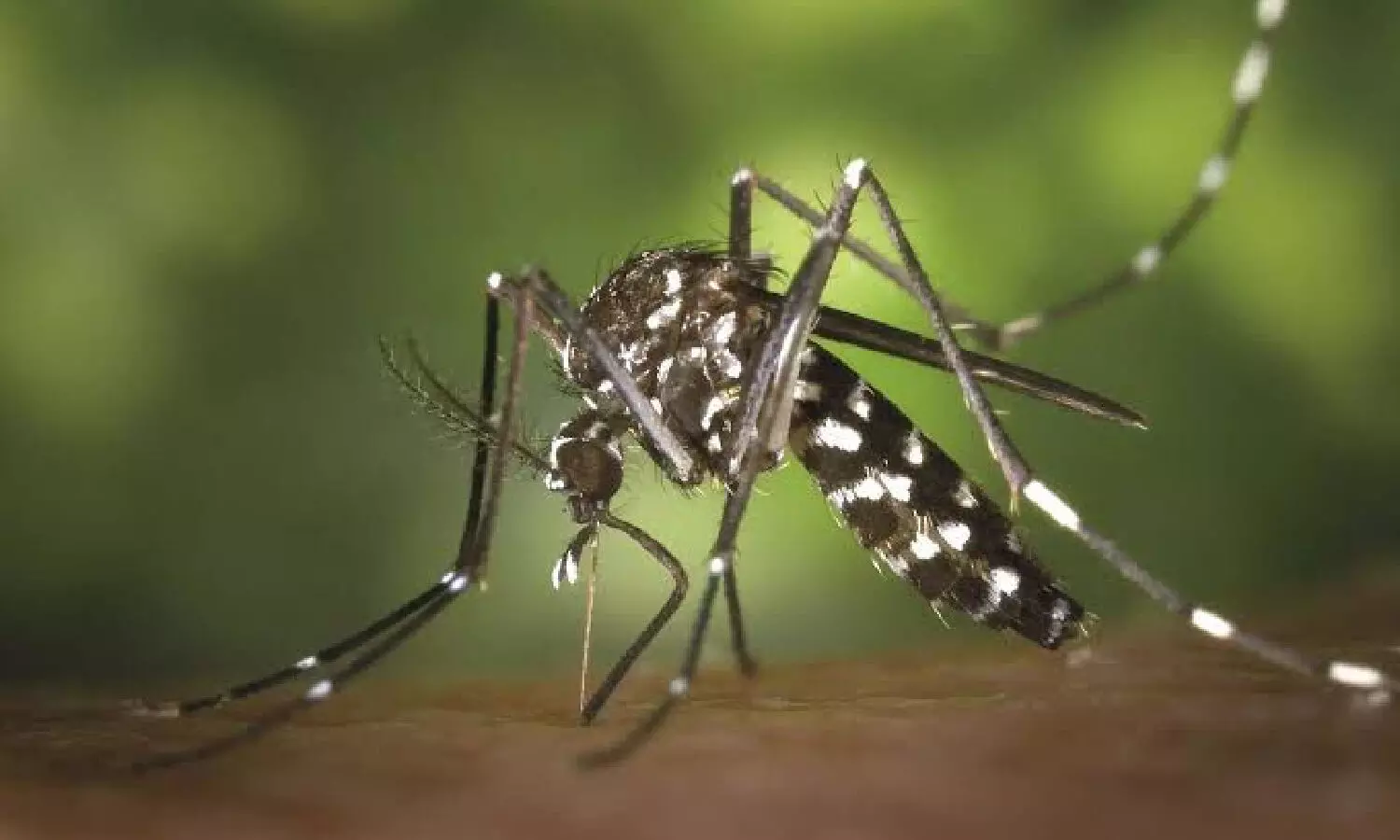Telangana govt urges precautions against mosquito bites, contaminated and stagnant water
Telangana govt urges precautions against mosquito bites, contaminated and stagnant water
By Newsmeter Network
Hyderabad: As monsoon rains continue across Telangana, the State health department has issued a public advisory urging citizens to take preventive steps against mosquito-borne and water-related infections. Rising humidity and water stagnation have created favourable conditions for the spread of dengue, gastroenteritis, typhoid, jaundice and seasonal viral fevers.
‘Friday Dry Day’ to prevent dengue
To control the breeding of Aedes aegypti mosquitoes — the primary carriers of dengue — the health department has urged households, offices and institutions to observe a ‘Friday Dry Day’ every week. The initiative calls for a weekly inspection and drying of flower pots, water coolers, buckets and any other items that may collect stagnant water.
“Aedes mosquitoes breed in clean, stagnant water, often within homes,” said Dr B Ravinder Nayak, director of Public Health. “Observing one dry day a week can drastically reduce the risk of mosquito breeding.”
Dr Anupriya Menon, an internal medicine specialist, added, “People often overlook small containers or planters on balconies. We advise residents to empty and scrub these weekly. This small habit can make a big difference in urban dengue control.”
Mosquito precautions during the day
Unlike malaria mosquitoes, dengue carriers are day biters.
The health department has advised individuals to keep windows and doors closed during peak biting hours (early morning and late afternoon), install screens and use mosquito repellents even during daytime.
“Patients assume they’re safe from bites during the day, which leads to under-preparedness,” said Dr Mohammed Azad, a general physician based in Malakpet. “Bed nets, repellents and even wearing full-sleeved clothes can help reduce exposure.”
Parents have also been advised to cover baby cribs and children’s beds with fine mosquito netting during the day.
Waterborne disease prevention
Health officials have also noted a sharp increase in waterborne infections such as gastroenteritis, typhoid and jaundice during the past two weeks, particularly in urban slums and low-lying residential colonies.
The department is encouraging the public to drink only boiled or purified water, avoid raw or stale food and maintain personal hygiene, including handwashing before and after meals.
“Many viral and bacterial infections in monsoon are linked to contaminated water sources,” said Dr Amita Rao, a microbiologist with Osmania General Hospital. “Boiling water for at least five minutes or using a certified purifier can significantly reduce the risk.”
Airborne infections and viral fevers
Seasonal viral fevers and influenza-like illnesses are also on the rise.
Citizens have been urged to follow basic cough etiquette: using handkerchiefs or tissues while sneezing or coughing, avoiding physical contact like handshakes with sick individuals and using hand sanitisers frequently.
“Schools, offices, and public places are common sites for airborne transmission,” said Dr Manish Kumar, a pulmonologist from Banjara Hills. “We encourage people with flu symptoms to stay home and avoid crowded places.”
Health Department’s public appeal
Dr Ravinder Nayak emphasised the need for community participation: “The government is doing its part through fogging and awareness drives, but citizens must also take responsibility at the household level. Collective vigilance is the only way to reduce disease burden during the monsoon.”
The department has also appealed to Resident Welfare Associations (RWAs), schools, and commercial establishments to regularly check for water stagnation and ensure hygienic surroundings.
Key takeaways for the public
- Every Friday, empty and clean water-holding containers to prevent mosquito breeding.
- Use mosquito repellents and cover beds and cribs, especially during the day.
- Drink only boiled or treated water and avoid consuming leftover or uncovered food.
- Practice cough etiquette and maintain hand hygiene to prevent viral infections.
With these preventive steps, health officials hope to minimise the seasonal surge in infections and ease the pressure on the city’s healthcare infrastructure.